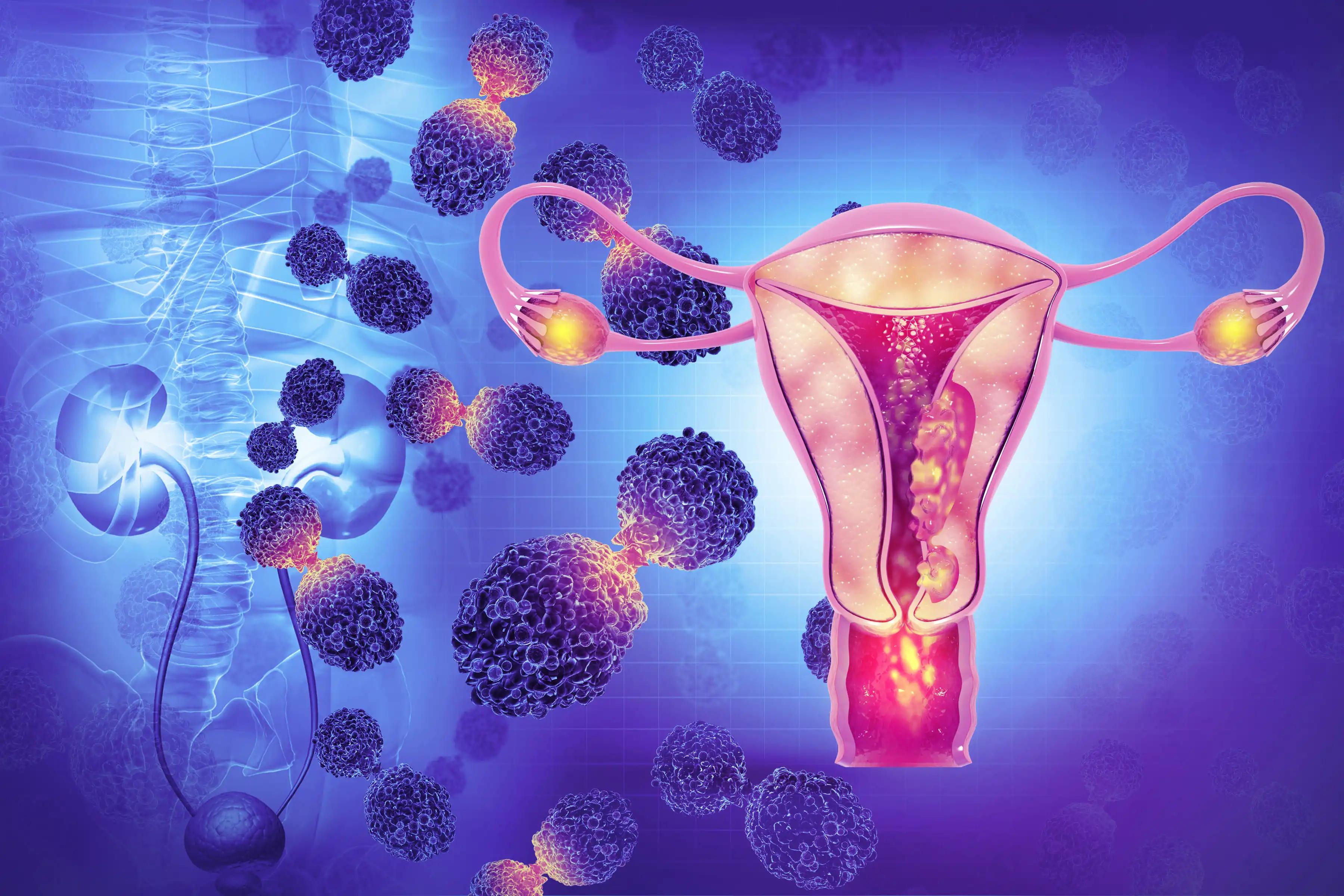KEY TAKEAWAYS
- The AtTEnd phase 3 trial aimed to assess Q-TWiST in EC with a special focus on pts with dMMR.
- The atezo+CP improved the quality-adjusted survival in advanced/recurrent EC compared to CP alone.
This was a randomized multicentric trial, atezolizumab (atezo) was added to standard carboplatin and paclitaxel chemotherapy (CP) which improved the progression-free survival (PFS) rates to a statistically significant level vs CP alone in patients (pts) with advanced or recurrent endometrial carcinomas (EC), with an observable benefit especially in pts with mismatch repair deficient (dMMR) carcinoma. The post-hoc analysis recorded the quality-adjusted time without symptoms of disease progression or treatment toxicity (Q-TWiST) in both the dMMR and overall pts populations.
Maria Pilar Barretina Ginesta and the team determined the Q-TWiST in pts with advanced/recurrent EC, focusing specifically on those with mismatch repair deficient (dMMR) carcinomas and the overall patient population.
Researchers randomized pts in a 2:1 ratio to receive either CP and atezo (N=360) or a placebo (PBO) (N=189), followed by atezo or PBO until disease progression. In the safety population, which included 356 pts in the atezo arm and 185 pts in the PBO arm, overall survival (OS) was divided into 3 health statuses: time without symptoms of progression or toxicity (TWiST), time before progression with Grade ≥ 3 adverse events ((AE’s) (TOX)), and time from progression to death (REL).
Results indicated that the restricted mean survival time, measured up to 36 months for the all-comers population and 23 months for the dMMR population, was adjusted using the EQ-5D-5L questionnaire for each health status. Q-TWiST was calculated using utility values for TOX and REL relative to TWiST.
Further data revealed that the median follow-up duration was 28.3 months. Patients receiving atezo experienced a significantly longer Q-TWiST compared to those receiving a placebo, with 25.9 versus 24.0 months (P=0.0144). Specifically, for patients with dMMR carcinoma, Q-TWiST was also significantly longer in the atezo arm compared to the placebo arm, showing 20.3 versus 16.2 months (P<0.0001).
In the all-comers population, patients treated with atezolizumab had a TWiST of 13.4 months, TOX of 3.0 months, and REL of 9.8 months. For the placebo group, TWiST was 11.2 months, TOX was 2.1 months, and REL was 11.5 months. In patients with dMMR carcinoma, the atezo group had a TWiST of 14.4 months, TOX of 1.6 months, and REL of 4.5 months, while the placebo group had a TWiST of 7.7 months, TOX of 1.9 months, and REL of 7.3 months.
The trial concluded that in pts with advanced/recurrent EC, the addition of atezo to CP improved the quality-adjusted survival compared to CP alone.
The trial was sponsored by Mario Negri Institute for Pharmacological.
Source: https://cslide.ctimeetingtech.com/gynae24hybrid/attendee/confcal/show/session/10
Clinical Trial: https://clinicaltrials.gov/study/NCT03603184
Ginesta M P B, Uggeri S, Harano K, et al. (2024). “Quality-adjusted survival in patients with advanced or recurrent endometrial carcinoma treated with atezolizumab in combination with carboplatin-paclitaxel versus carboplatin-paclitaxel in the AtTEnd/ENGOT-EN7 trial.” Presented at ESMO-GC 2024, (Abstract 35MO)



